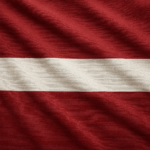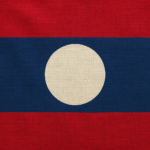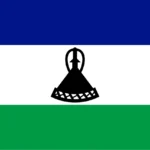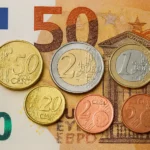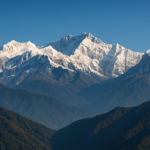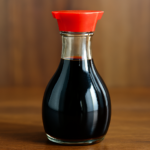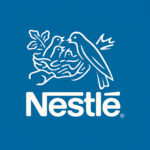
Ghana, located in West Africa, is a country rich in cultural diversity, natural resources, and vibrant traditions. Known for its warm hospitality and dynamic history, Ghana offers a unique blend of modernity and heritage. From colorful festivals that celebrate its cultural richness to its significant contributions to the global economy through natural resources, Ghana’s identity is shaped by its people, history, and environment. This overview highlights some interesting and verified facts about Ghana, showcasing its festivals, wildlife, sports, and more.
Capital City: Accra, the capital of Ghana, is located on the Gulf of Guinea coast and serves as the largest city in the country. It is a vibrant metropolis known for its rich history and cultural diversity. The city is the political, economic, and educational center of Ghana, hosting important government institutions, international embassies, and numerous universities. Accra is characterized by a mix of modern skyscrapers, colonial buildings, and bustling markets, making it a hub of activity and a focal point for both locals and tourists.
Independence: Ghana achieved independence from British colonial rule on March 6, 1957, marking a significant milestone in African history. This event made Ghana the first sub-Saharan African country to gain independence, inspiring other nations to seek self-determination. The independence movement was led by Kwame Nkrumah, who became the country’s first Prime Minister and later its President. The day is celebrated annually as Independence Day in Ghana, featuring parades, cultural displays, and various festivities that honor the nation’s sovereignty and heritage.
Population: As of 2021, Ghana’s estimated population stands at around 31 million people, making it one of the most populous countries in West Africa. The population is diverse, consisting of various ethnic groups, languages, and cultures. The Akan people are the largest ethnic group, followed by the Mole-Dagbani, Ewe, and Ga-Dangme. The population growth rate has implications for economic development, urbanization, and social services, as the country continues to develop its infrastructure to meet the needs of its growing populace.
Official Language: English is the official language of Ghana, a legacy of British colonial rule. It serves as a lingua franca among the diverse ethnic groups in the country, facilitating communication in government, business, and education. However, many Ghanaians are multilingual, speaking their indigenous languages alongside English. Some of the most widely spoken indigenous languages include Twi, Fante, Ewe, and Dagbani. The use of English in Ghana reflects the country’s colonial history while also promoting unity in a multicultural society.
Currency: The currency of Ghana is the Ghanaian cedi (GHS), which has undergone several changes since its introduction in 1965. The cedi was initially pegged to the British pound but has since faced fluctuations due to economic conditions. The cedi is subdivided into 100 ghanas, and its symbol is “₵.” The Central Bank of Ghana is responsible for issuing and regulating the currency. The cedi plays a crucial role in the country’s economy, influencing trade, investment, and consumer prices.
Regions: Ghana is administratively divided into 16 regions, each with its own unique culture, traditions, and economic activities. These regions include Greater Accra, Ashanti, Western, Eastern, Northern, Central, Western North, Bono, Bono East, Ahafo, Oti, Volta, Upper East, Upper West, Western Region, and Northern Region. Each region has its own capital and is responsible for local governance. The diversity among the regions contributes to the rich cultural tapestry of Ghana, with each region showcasing distinct customs, festivals, and dialects.
Coastline: Ghana boasts a coastline of approximately 539 kilometers along the Gulf of Guinea, providing access to maritime trade and fishing. The coastline is dotted with beautiful beaches, fishing villages, and historical sites, including forts and castles that reflect the country’s colonial past. Coastal cities like Accra, Cape Coast, and Takoradi are vital for trade and tourism, attracting visitors to explore the scenic beauty and cultural heritage of the region. The coastal ecosystem also supports various marine life and is crucial for the livelihoods of many communities.
National Flag: The Ghanaian flag features three horizontal stripes of red, yellow, and green, with a black star in the center. The red stripe symbolizes the bloodshed by those who fought for Ghana’s independence, the yellow represents the country’s mineral wealth, and the green signifies the lush vegetation and natural resources. The black star is a symbol of African freedom and unity, representing the aspirations of the African people. The flag was designed in 1957 and has become a powerful emblem of national pride and identity.
Cocoa Production: Ghana is renowned as the second-largest producer of cocoa in the world, following Côte d’Ivoire. Cocoa is a vital cash crop for the Ghanaian economy, contributing significantly to export revenues and providing livelihoods for millions of farmers. The country’s favorable climate and fertile soil make it ideal for cocoa cultivation, with regions such as Ashanti and Western producing the bulk of the crop. The government and various organizations have implemented initiatives to improve cocoa farming practices and enhance the sustainability of cocoa production, ensuring that farmers receive fair prices and that the industry contributes positively to local communities.
Ghanaian Music: Ghanaian music is a vibrant and diverse expression of the country’s cultural heritage. Highlife, which originated in the early 20th century, combines traditional Akan melodies and Western musical influences, often featuring brass instruments and guitar. It became popular among the urban elite and has evolved over the years into various sub-genres. Hiplife, a fusion of highlife and hip-hop, emerged in the 1990s and has gained immense popularity among the youth. Music plays a crucial role in social gatherings, celebrations, and cultural rituals, with artists like E.T. Mensah and Sarkodie gaining international recognition. Ghana’s music scene reflects its rich cultural tapestry and serves as a means of storytelling and social commentary.
Major Ethnic Groups: Ghana is home to a rich tapestry of ethnic groups, with the major ones being the Akan, Mole-Dagbani, Ewe, and Ga-Dangme. The Akan people, which include subgroups like the Ashanti and Fante, make up the largest portion of the population and are known for their rich cultural traditions, including colorful festivals and intricate crafts. The Mole-Dagbani people predominantly inhabit the northern regions and are known for their unique languages and customs. The Ewe people reside in the Volta Region and are celebrated for their vibrant music and dance. The Ga-Dangme people primarily live in the Greater Accra Region and are known for their traditional fishing practices and the celebration of the Homowo festival, which commemorates a historic famine.
Climate: Ghana experiences a tropical climate characterized by two main seasons: the wet and dry seasons. The wet season typically runs from April to October, bringing heavy rainfall, especially in the southern regions, while the dry season, from November to March, is marked by the Harmattan winds that blow from the Sahara Desert, leading to cooler temperatures and reduced humidity. The country’s climate supports a variety of ecosystems, from coastal mangroves to savannahs and forests, influencing agriculture, biodiversity, and the livelihoods of local communities. Understanding the climate is essential for planning agricultural activities and managing natural resources in Ghana.
Lake Volta: Lake Volta is one of the largest artificial lakes in the world, covering an area of about 8,482 square kilometers. It was created in 1965 by the construction of the Akosombo Dam on the Volta River, primarily for hydroelectric power generation. The lake is a crucial resource for Ghana, providing electricity, irrigation, and fishery opportunities. It supports a diverse ecosystem and is home to various fish species, making fishing an important economic activity for local communities. Lake Volta also serves as a scenic destination for tourism, with activities such as boat rides and fishing excursions attracting visitors.
Historical Sites: Ghana is rich in historical sites, many of which are recognized as UNESCO World Heritage Sites. The Cape Coast Castle and Elmina Castle are two of the most notable, serving as former slave trade forts. These castles played a significant role in the transatlantic slave trade, and today, they stand as poignant reminders of Ghana’s history and the impact of colonialism. Visitors to these sites can learn about the country’s past through guided tours, exhibitions, and memorials, fostering a deeper understanding of the struggles and resilience of the Ghanaian people.
Education: Ghana has made significant strides in improving its education system, leading to a relatively high literacy rate of about 79% as of 2021. The government has implemented policies to enhance access to education, including the Free Senior High School policy introduced in 2017, which allows students to attend secondary school without paying tuition fees. The education system consists of basic education (primary and junior high), secondary education, and tertiary education, with numerous universities and colleges across the country. Education is highly valued in Ghanaian society, and there is a strong emphasis on promoting STEM (science, technology, engineering, and mathematics) fields to prepare the youth for future challenges.
National Dish: The national dish of Ghana is called “fufu,” a starchy staple made primarily from cassava and plantains. The preparation of fufu involves boiling the ingredients until soft and then pounding them into a smooth, stretchy consistency. It is often served with a variety of soups and stews, such as groundnut soup or light soup, and is a central part of many traditional meals. Fufu is not only a culinary delight but also a cultural symbol, often enjoyed during communal gatherings and celebrations, reinforcing social bonds among families and communities.
Independence Leader: Kwame Nkrumah was a pivotal figure in Ghana’s history, serving as the first Prime Minister and later President after independence. He was a prominent advocate for Pan-Africanism and played a crucial role in mobilizing support for the independence movement. Nkrumah’s vision for Ghana included industrialization, education reform, and social justice, which he pursued through various policies and initiatives. His leadership style was marked by a strong emphasis on nationalism and self-reliance, and he remains a revered figure in Ghanaian history, with his legacy influencing subsequent generations of leaders and activists across Africa.
Ghanaian Festivals: Ghana is renowned for its vibrant and diverse festivals, which reflect the country’s rich cultural heritage and community spirit. One of the most celebrated festivals is Homowo, observed by the Ga people, which marks the end of the hunger season and the beginning of the harvest. It features traditional music, dance, and a feast of special dishes, including the iconic “kpokpoi.” Another significant event is Panafest, a cultural festival that celebrates the African diaspora and promotes unity among Africans and those in the diaspora. It features performances, workshops, and discussions that highlight the history and contributions of Africans globally.
Natural Resources: Ghana is endowed with an abundance of natural resources, making it one of the leading producers of minerals in Africa. The country is particularly famous for its gold production, often ranking as one of the top gold producers globally. In addition to gold, Ghana has significant deposits of bauxite and manganese, which are vital for aluminum and steel production, respectively. The exploitation of these resources has played a crucial role in the country’s economy, attracting foreign investment and providing employment opportunities, though it also raises discussions about sustainable management.
Wildlife: Mole National Park is Ghana’s largest wildlife park, covering an area of over 4,577 square kilometers. It is located in the northern region of the country and is renowned for its diverse wildlife and ecosystems. The park is home to a variety of species, including elephants, antelopes, and over 300 bird species, making it a popular destination for eco-tourism and wildlife enthusiasts. Visitors to Mole can enjoy guided safaris, bird watching, and the unique experience of observing animals in their natural habitat, contributing to conservation efforts while boosting local economies.
Sports: Football (soccer) holds a special place in the hearts of Ghanaians, serving as a unifying force across the nation. The Ghana national football team, known as the Black Stars, has a storied history and has achieved significant success in international competitions, including multiple appearances in the FIFA World Cup and winning the Africa Cup of Nations four times. The passion for football extends beyond the national team, with local clubs and community leagues fostering talent and providing entertainment for millions of fans across the country.
Internet Penetration: As of 2021, internet penetration in Ghana was approximately 50%, indicating a significant growth in digital connectivity over the years. This increase has been driven by the expansion of mobile internet services and the proliferation of smartphones, which have made the internet more accessible to the general population. The rise in internet usage has facilitated communication, education, and access to information, contributing to the growth of various sectors, including e-commerce and digital entrepreneurship.
Ghana’s Flag: The Ghanaian flag, adopted in 1957, features three horizontal stripes of red, yellow, and green, with a black star in the center. The red symbolizes the blood shed by those who fought for independence, yellow represents the country’s mineral wealth, and green signifies the rich vegetation of Ghana. The black star is a powerful emblem of African freedom and unity, reflecting Ghana’s role as the first sub-Saharan African country to gain independence from colonial rule in 1957. The flag is a source of national pride and is prominently displayed during national celebrations and events.
Ghanaian Proverbs: Ghanaian culture is rich in proverbs, which serve as a means of imparting wisdom and life lessons. These proverbs often encapsulate the values, beliefs, and experiences of the Ghanaian people, addressing themes such as community, respect, and resilience. For example, the proverb “Wisdom is like a baobab tree; no one individual can embrace it” emphasizes the importance of collective knowledge and collaboration. Ghanaians frequently use proverbs in everyday conversations, storytelling, and speeches, making them an integral part of the country’s oral tradition.
Traditional Clothing: Kente cloth is one of the most recognizable symbols of Ghanaian culture, characterized by its vibrant colors and intricate patterns. Originally woven by the Akan people, Kente is made from silk and cotton and is often worn during significant cultural events, ceremonies, and celebrations. Each pattern and color in Kente carries specific meanings, representing concepts such as wealth, love, and spirituality. The cloth has gained international recognition and is celebrated as a symbol of African heritage, often used in fashion and art to promote cultural identity and pride.
Frequently Asked Questions About Ghana
History and Culture
- What is Ghana’s historical significance?
- Ghana is often referred to as the “birthplace of African independence” due to its role in the decolonization movement. It was the first country in sub-Saharan Africa to gain independence from European colonial rule in 1957.
- Who were the Ashanti people and what was their role in Ghana’s history?
- The Ashanti people were a powerful and influential kingdom that dominated much of present-day Ghana for centuries. Their rich cultural heritage, including their intricate gold artifacts and traditional dances, continues to shape Ghanaian identity.
- What is the significance of the Cape Coast Castle and Elmina Castle?
- These historic forts were built by European colonizers to facilitate the transatlantic slave trade. They are now UNESCO World Heritage Sites and serve as poignant reminders of Ghana’s painful past.
Geography and Climate
- What is the climate like in Ghana?
- Ghana has a tropical climate with high temperatures and humidity year-round. There are two main seasons: the rainy season (April to November) and the dry season (December to March).
- What are some of Ghana’s major cities and towns?
- Accra, the capital city, is the largest urban center. Other notable cities include Kumasi, Tamale, and Cape Coast.
- What are some of Ghana’s natural attractions?
- Ghana boasts a diverse landscape, including lush rainforests, sandy beaches, and national parks. Some popular destinations include Kakum National Park, Mole National Park, and the Volta River.
People and Society
- What is the population of Ghana?
- Ghana has a population of approximately 33 million people.
- What are the major languages spoken in Ghana?
- English is the official language, but there are numerous indigenous languages, including Akan (the most widely spoken), Ewe, and Ga.
- What is the traditional religion of Ghana?
- While Christianity and Islam are the dominant religions, many Ghanaians also practice traditional African religions.
Economy and Tourism
- What is Ghana’s economy based on?
- Ghana’s economy is primarily driven by agriculture, mining, and services. The country is a major producer of gold and cocoa.
- Is Ghana a popular tourist destination?
- Yes, Ghana is becoming increasingly popular with tourists attracted to its rich history, vibrant culture, and beautiful beaches.
- What are some tips for travelers visiting Ghana?
- Travelers should be aware of local customs and etiquette, drink bottled water, and take precautions against mosquito-borne diseases.
